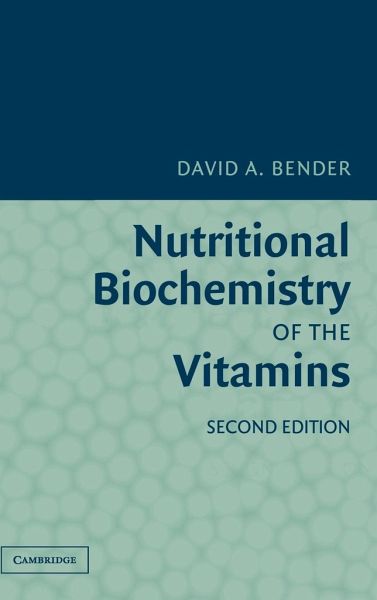
Nutritional Biochemistry of the Vitamins
Versandkostenfrei!
Versandfertig in 1-2 Wochen
163,99 €
inkl. MwSt.
Weitere Ausgaben:

PAYBACK Punkte
82 °P sammeln!
The vitamins are a chemically disparate group of compounds whose only common feature is that they are dietary essentials that are required in small amounts for the normal functioning of the body and maintenance of metabolic integrity. Metabolically they have diverse function, as coenzymes, hormones, antioxidants, mediators of cell signaling and regulators of cell and tissue growth and differentiation. This book explores the known biochemical functions of the vitamins, the extent to which we can explain the effects of deficiency or excess and the scientific basis for reference intakes for the p...
The vitamins are a chemically disparate group of compounds whose only common feature is that they are dietary essentials that are required in small amounts for the normal functioning of the body and maintenance of metabolic integrity. Metabolically they have diverse function, as coenzymes, hormones, antioxidants, mediators of cell signaling and regulators of cell and tissue growth and differentiation. This book explores the known biochemical functions of the vitamins, the extent to which we can explain the effects of deficiency or excess and the scientific basis for reference intakes for the prevention of deficiency and promotion of optimum health and well-being. It also highlights areas where our knowledge is lacking and further research is required. It provides a compact and authoritative reference volume of value to students and specialists alike in the field of nutritional biochemistry, and indeed all who are concerned with vitamin nutrition, deficiency and metabolism.














